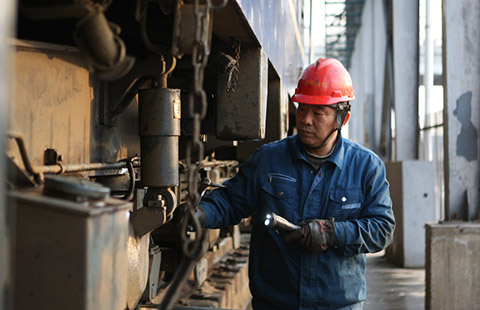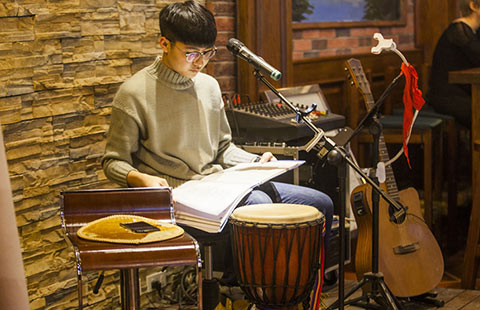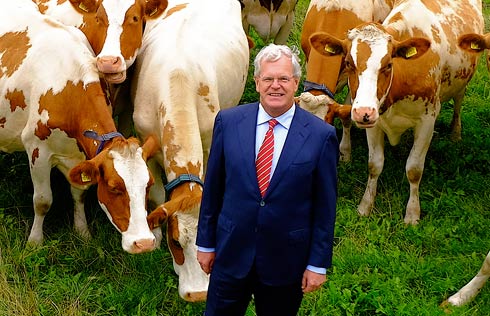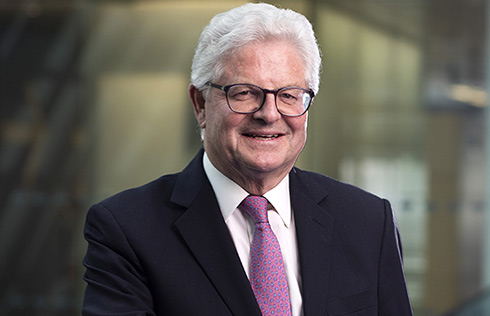Xi charts globalization course at Davos forum with Chinese plan
DAVOS, Switzerland - Chinese President Xi Jinping on Tuesday laid out his plan to lead global efforts in charting the course of economic globalization.
Xi's address at the 2017 World Economic Forum (WEF) at Davos, Switzerland beamed the much-needed confidence into the global economy amid grave concerns over rising protectionism and uncertainties in the wake of Brexit and the election of next US President Donald Trump.
Clarifying globalization
Though economic globalization has created new problems, this is no justification to write economic globalization off completely, said Xi,the first Chinese head of state to attend Davos meetings.
"Rather, we should adapt to and guide economic globalization, cushion its negative impact, and deliver its benefits to all countries and all nations," Xi told the audience led by WEF founder and Executive Chairman Klaus Schwab.
The Chinese president warned that any moves to turn back to protectionism runs against historical trend.
"Whether you like it or not, the global economy is the big ocean that you cannot escape from. Any attempt to cut off the flow of capital, technologies, products, industries and people between economies, and channel the waters in the ocean back into isolated lakes and creeks is simply not possible." said Xi.
"No one will emerge as a winner in a trade war," Xi said.
The president called on the international community to face up to the problems caused by the globalization instead of dodging them.
"In the face of both opportunities and challenges of economic globalization, the right thing to do is to seize every opportunity, jointly meet challenges and chart the right course for economic globalization," he said.
The president pointed out the rise of China as the world's second largest economy is the result of its integration into the vast ocean of the global economy.
"We have had our fair share of choking in the water and encountered whirlpools and choppy waves, but we have learned how to swim in this process. It has proved to be a right strategic choice," he noted.
Honson To, chairman at KPMG China, said Xi presented a clear case for an urgent and courageous response from global leaders.
"I was deeply moved by the strong sense of China's purpose as a responsible leader on the world stage," he said.
"I think it is very crucial that the Chinese President Xi clarified the concept to the world, to continue to promote globalization, to promote global development," said Justin Yifu Lin, the former Chief Economist of the World Bank.
A solid plan
Analyzing the root causes of the sluggish global economy and the problems for which globalization has been made the scapegoat, Xi pointed to a lack of robust driving forces for global growth, inadequate global economic governance, and uneven global development.
He stressed the importance of developing a dynamic innovation-driven growth model, a model of open and win-win cooperation featuring a well-coordinated and inter-connected approach, and a model of fair and equitable governance in keeping with the trend of the times, and a balanced, equitable and inclusive development model.
"China aims to tackle the problems of inequality, exclusiveness and inefficiency in the previous globalization process and provide better global governance products for the world," said Fan Yongpeng, an associate professor with the China Institute of Fudan University.
"Since the G20 Hangzhou summit this year, we have heard more of China's sober, rational and constructive voice at a time when no one is willing to take on a leading role," Fan said.
Xi pledged that China's development will continue to offer opportunities to business communities in other countries.
In the coming five years, China is expected to import 8 trillion US dollars of goods, attract $600 billion of foreign investment, and make $750 billion of outbound investment, said the president, adding that Chinese tourists will make 700 million overseas visits.
China, he said, will advance the building of the Free Trade Area of the Asia-Pacific and negotiations of the Regional Comprehensive Economic Partnership to form a global network of free trade arrangements.
On the progress of the Belt and Road Initiative, envisioned as an infrastructure and trade network connecting Asia with Europe and Africa along ancient trade routes, Xi told the audience that China's circle of friends is growing bigger and the initiative has delivered significant benefits.
Over 100 countries and international organizations have given support to the initiative, and more than 40 have signed cooperation agreements with China, said Xi, who put forward the initiative in 2013.
Meanwhile, Chinese investment along the routes has surpassed $50 billion in the past three years with a number of major projects being launched in the countries along the routes, spurring the economic development of these countries and creating many local jobs, Xi noted.
China plans to host a Belt and Road forum for international cooperation in Beijing this May to brainstorm on interconnected development as part of China's efforts to make globalization more inclusive and beneficial to all, the president announced.
China assuming a leading role
Schwab, founder and executive chairman of the WEF told Xinhua in an exclusive interview that in a time when the world is facing the danger of de-globalization and disintegration of global cooperation, the voice of China as "a strong geoeconomical and geopolitical power" is "particularly important."
"I think it is very important to have China represented as a responsible and responsive leadership country in the world," Schwab said.
Swiss President Doris Leuthard noted the "difficult situation" that the world is facing, and expressed her expectation that China would "show its world power status and how it can be a factor of stability."
Recalling Xi's addresses from the APEC meetings in the Philippines in 2015, to the G20 Hangzhou summit in 2016 and now to the 2017 Davos forum, Jack Ma, the founder and executive chairman of Alibaba Group, said he saw China's increasingly mature role on the world stage, and growing leadership and accountability as a big country.
"President Xi's instinct and foresight in today's speech is impressive," he told Xinhua after listening to Xi's keynote speech. "He saw today from the future, and saw China from the world," Ma said.
Social media users commented while watching the live streaming of Xi's Davos speech. "China is humble, kind, helpful and getting stronger and stronger, contributing more to the world," said one who goes with the name Cheah KH. Another, Bern Chen, described Xi as "an exemplary heart-centered statesman sharing his views with other world leaders and the global community."
Xi arrived in Switzerland on Sunday for a four-day state visit and the WEF annual meeting, which is themed "Responsive and Responsible Leadership" this year. About 50 heads of state and 1,700 political, business, academic and media leaders from across the world attended the opening ceremony.
In his first overseas trip in 2017, Xi will also travel to Lausanne and Geneva to visit the International Olympic Committee, the World Health Organization and the UN Office at Geneva.

















